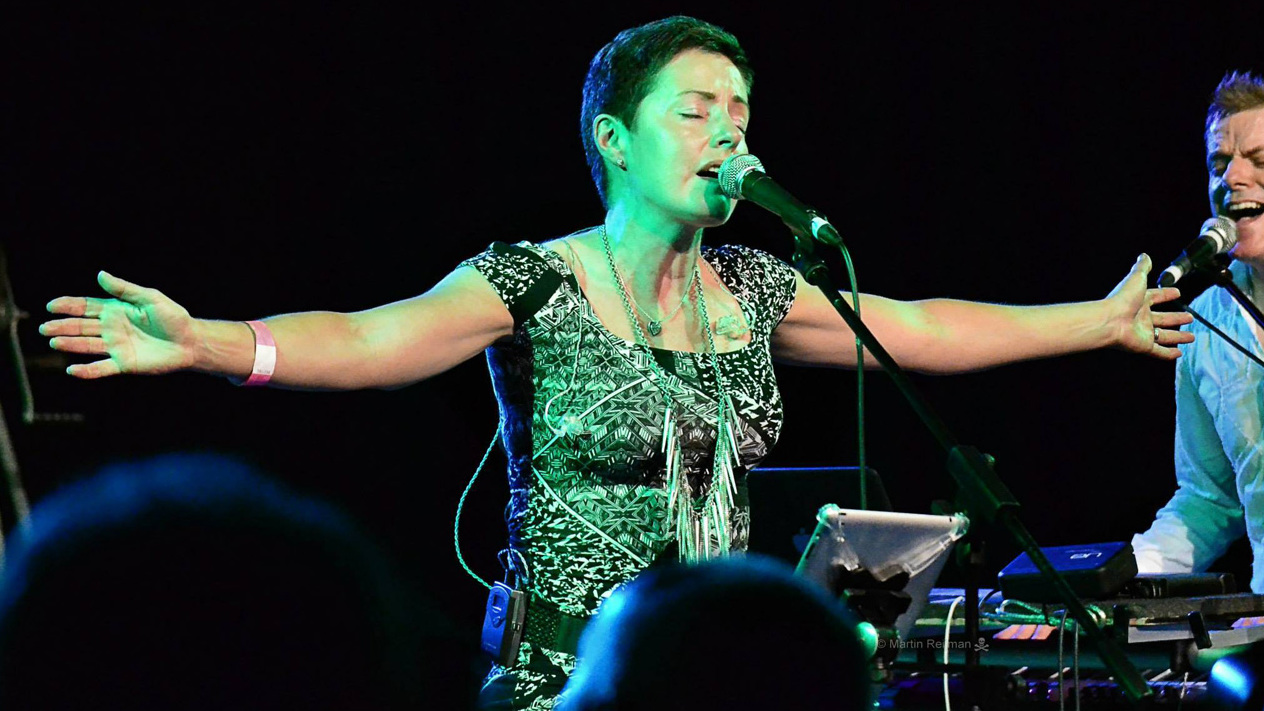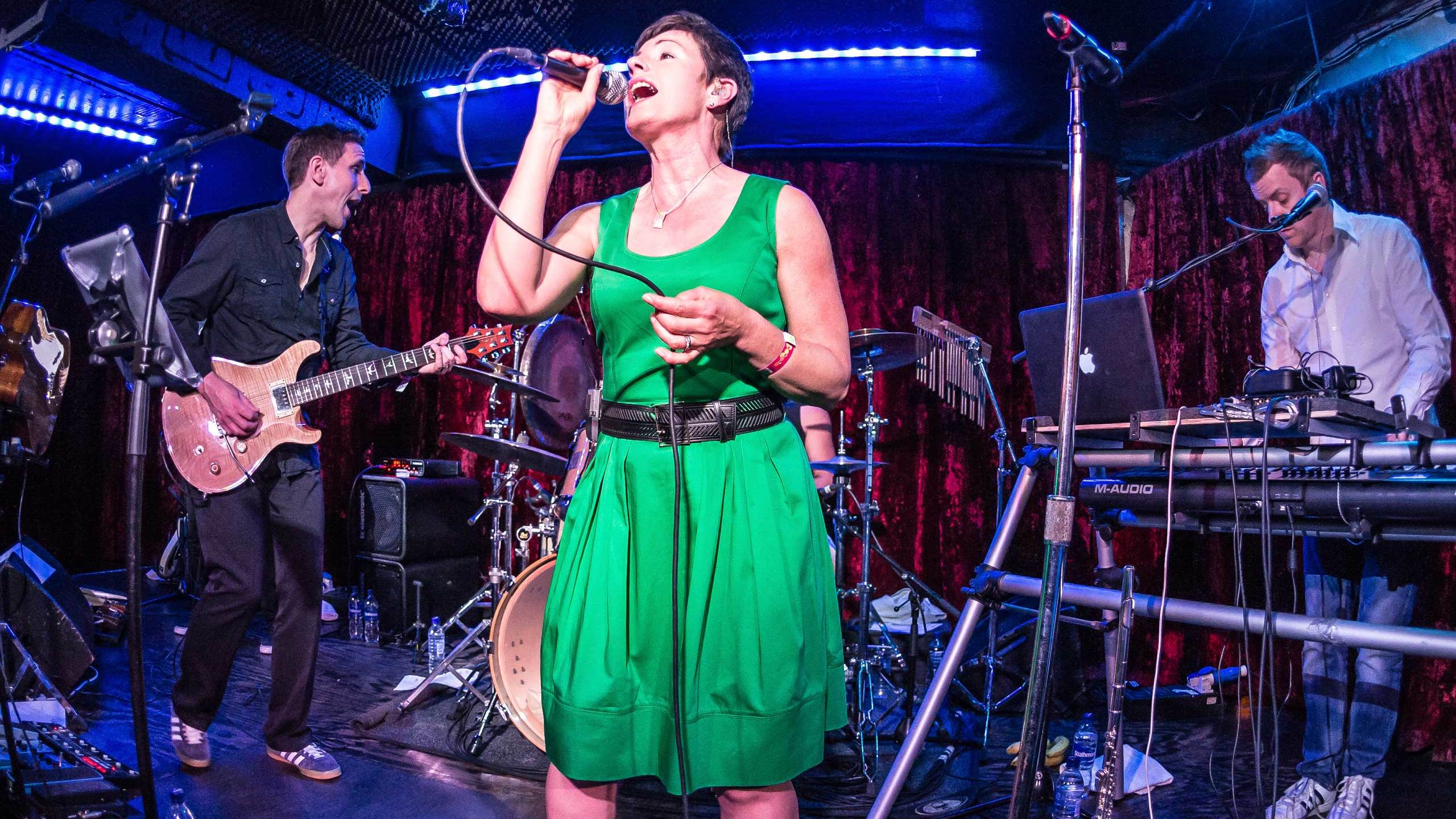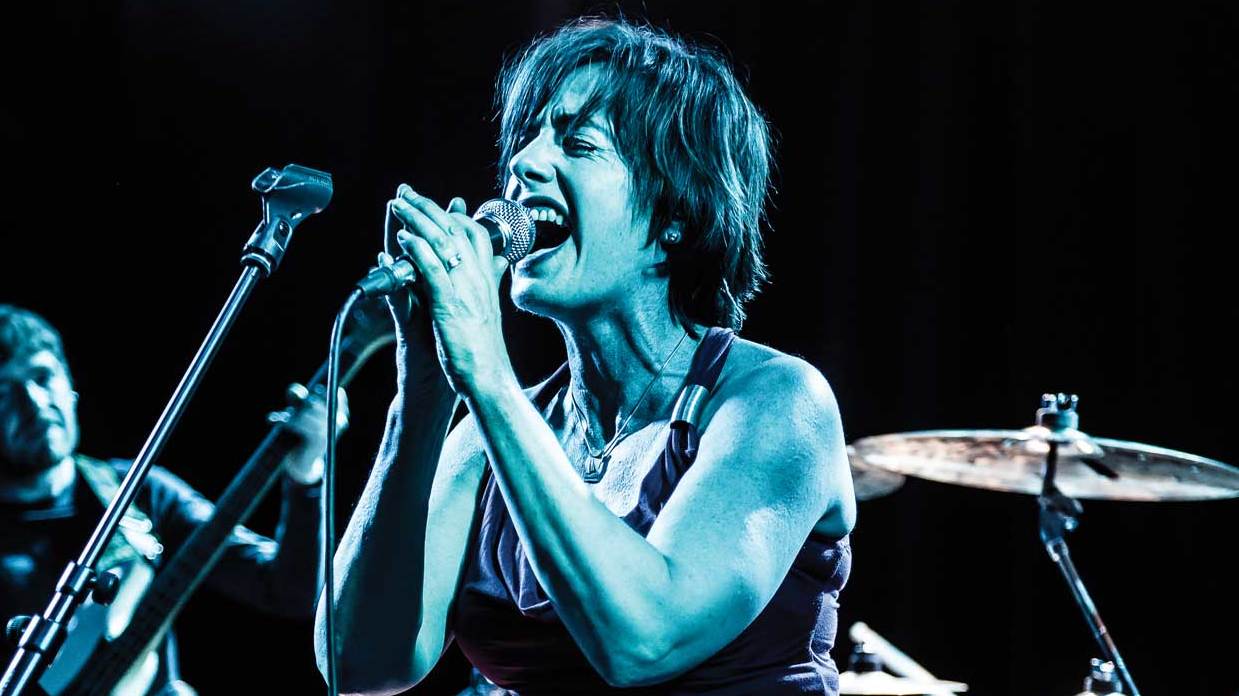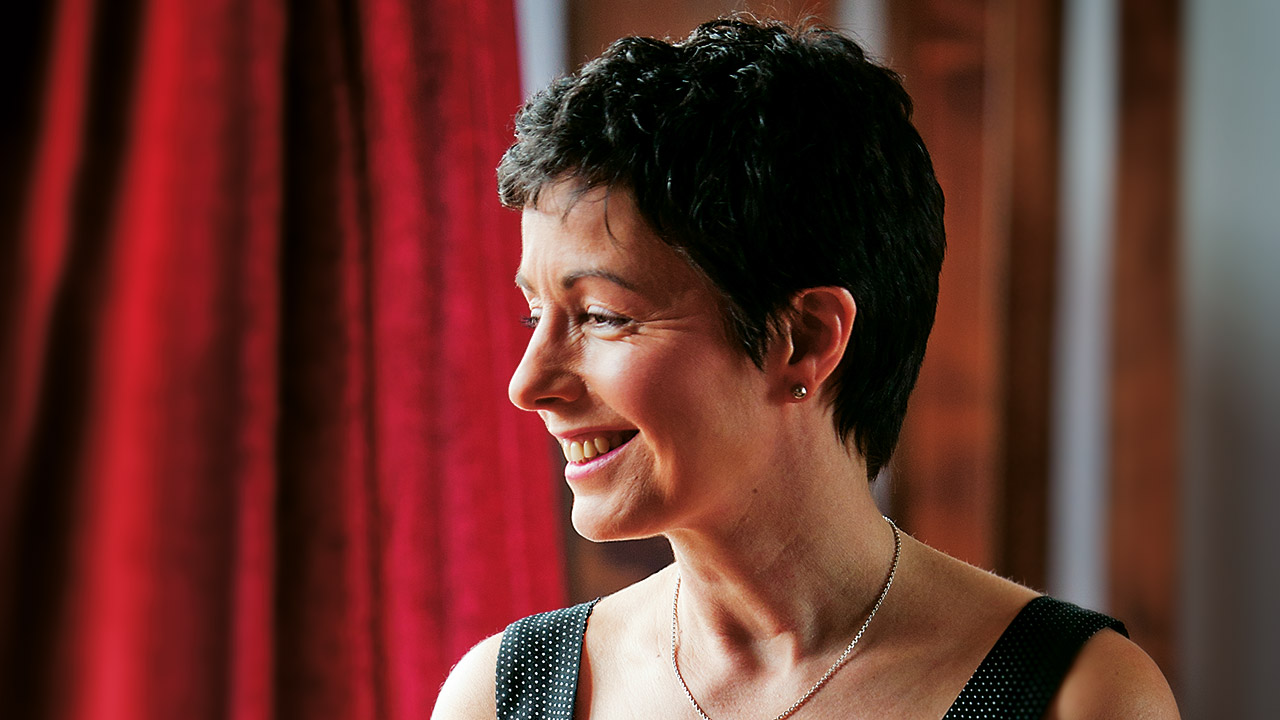"When you’re confronted with it, there’s not much you can do. You’ve just got to
get on with things, and adjust life accordingly.”
One of the many extraordinary things about Magenta’s Christina Booth is the straightforward way in which she talks about her recent brush with cancer. On this wet, midwinter day in South Wales, her lilting voice is pure light in the gloom. And underneath the jokes and laughter, Booth has the calm authority of someone who has faced testing times and come through.
For those not up to speed on this latest chapter in Booth’s journey, here’s the backstory. Back in 2013, Welsh prog-wizards Magenta released The Twenty Seven Club, a beast of a concept album that explored the likes of Robert Johnson, Jimi Hendrix and others who’d died at that seemingly most dangerous age for a rock star. Its synthesis of classic and modern chops, held together by Booth’s potent voice, offered a chance for them to push ahead as a band.

Then things didn’t quite go to plan: Booth was diagnosed with breast cancer. In the spring of 2014, Magenta, Touchstone and The Reasoning planned to hit the road with their Trinity Festival tour. Booth’s chemotherapy made that impossible. However, her determination and strength led to Magenta offering a fabulous short set at the tour’s Leamington Spa date, an event which was turned into a charity fundraiser for cancer treatment. After a summer recovering from the rigours of chemo, Magenta’s sparkling set at Summer’s End announced that Booth was back. Now her second album The Light is about to drop.
Pleasingly, Booth is past the initial health fears. “I’m very well, actually. I’m fine. I finished chemo back at the end of May, and I tolerated it very well. I enjoyed the summer. I must admit, apart from having the breast cancer, and the chemo, I really enjoyed it.”
Amid the joking, she’s very clear that she’s not playing the stoic hero. “I was very physically fit before all this started so I think that was a huge help,” she says, “And I carried on. I was sensible but I carried on training. I did get the odd day when I felt tired and sick, but it was very rare. I was lucky.”

Lucky or not, it’s clear that Booth’s new album has been forged out of profound challenges. The Light is a mature and sometimes startling album. In retrospect, her first album, Broken Lives And Bleeding Hearts, felt like Booth looking to find her own voice in the midst of the powerful influence of long‑time partner in prog Rob Reed. However, there’s no doubt that The Light is the real deal.
Though she once again works with Reed, this time, Booth has clearer ideas about what she wants. “With the first album, I just let Rob do what he wanted to a certain extent,” she says. “This time I’ve contributed more. Not just lyrics and melodies but production ideas. Rob would have been very open to me doing that for the first album, but I had a lack of confidence. This time if there’s something I didn’t like in it I’ve told him.”
The fruit of this confidence is the album’s emotional impact. The Light is a pared-down offering, laced with icy chills. If Magenta’s work is often grandiose, this album unfolds in a world of questionable hope and lost loved ones. Booth explores the pain of losing her parents as well as facing her own mortality. With its balance between simple, piano-based arrangements and Booth’s exposed voice, The Light is, in its own way, every bit as vulnerable as Peter Hammill’s break‑up masterwork Over. Maybe that’s why Booth is a little nervous about the album’s forthcoming release.
“It’s funny, I’ve no idea how people are going to receive it. It is a little bit melancholy. I don’t want people to be slashing their wrists,” she says, before laughing.
But it’s The Light’s seriousness that may break open a whole new audience for her. Her debut sold well with Magenta diehards, but The Light should bring her to the attention of fans of alt-rock and singer-songwriters too. It feels like the new album is the beginning of a new era for Booth. She honours the past, but creates a distinctive sound.

The line-up of musicians on the record is stellar. In addition to Magenta co-conspirators Rob Reed and Chris Fry, prog lord Andy Tillison offers Hammond, while John Mitchell lays down some guitar licks. Booth’s next job is to gather the musicians together for an album launch party. “It’s like herding cats,” she says with a laugh. Running alongside this are a clutch of upcoming Magenta gigs, including an appearance at HRH Prog.
Given her recent brush with chemo, it seems almost rude to comment on her new look, but she responds with characteristic humour. “It’s great having short hair. Great for the gym. Wash and go! People say to me, ‘You look so much younger with short hair!’”
She’s also very conscious that she has the whole prog community rooting for her. Of all the messages Booth’s received, she particularly appreciated those from women with cancer who felt empowered to speak up about their illness for the first time. “That was when I realised how much impact I can have. I thought, ‘Oh my God, there are a few people who take notice of what I say!’”
On the title track, Booth sings, ‘I will reach out my hand to you. Oh will you take it? I want you to. I want to show you there is a light… whatever life throws us, we’ll find our way through.’ While she acknowledges that this album covers some tough territory – Booth’s song about her dad’s struggle with dementia is heartbreaking – it’s also a document of hope.
Booth is an inspiration, and even if, as she claims, “I’m no rock star – I’m just a woman who can sing a bit,” she’s not just an asset to prog music. Her light burns bright in a dark and challenging world.
This article originally appeared in issue 54 of Prog Magazine.
